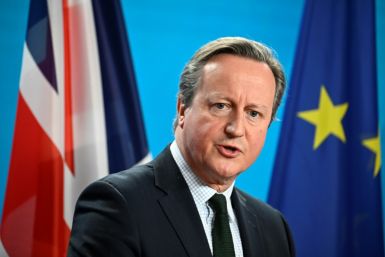AMEC denies new anti-mining tax ads are political
The Association of Mining and Exploration Companies (AMEC), which represents junior and mid-tier miners, has begun a new advertising campaign against the Gillard government's resources tax but dismisses it as it is politically influenced.
The key mining company group has claimed the Mineral Resources Rent Tax (MRRT) is tilted in favour of the three major players that negotiated it with Prime Minister Julia Gillard and its new television and radio ads say every Australian will "get whacked" by the proposed levy.
AMEC chief executive officer Simon Bennison, who unveiled the advertisements in Perth on Sunday, said their primary message was the tax would hurt not only the mining sector but the broader community.
The TV ads show Australian civilians being blasted sideways to the sounds of a jingle: "You're gonna get whacked, by the mining tax."
The campaign say the additional $10.5 billion impost on mining will cost employment, lift electricity prices and see the value of superannuation funds slump.
In Perth last week, Treasurer Wayne Swan said the anti-mining tax advertising campaign was politically motivated and had the fingerprints of the Liberal Party all over it.
However, Mr Bennison on Sunday denied that the ads were part of a scheme to drive out the Labor government in favour of the opposition, which has pledged to dump the MRRT.
"We've been opposed to this tax since May 2.
"We have been caught up in a process created by the government that started well before this election cycle," Mr Bennison said.
"We're not trying to change voting patterns, we're purely focused on the government getting the message that we don't want this tax."
According to Mr Bennison, AMEC's goal of having the revamped tax cancelled just happened to be what the coalition was also pushing.
AMEC member and Atlas Iron managing director David Flanagan said the revised tax forged between the Gillard government and BHP Billiton, Rio Tinto and Xstrata unfairly favoured the three mining giants.
"Those big companies got an opportunity to introduce a new barrier to entry into the industry which impacts pretty much all of the juniors wanting to get into coal, or wanting to get into iron ore."
"There's all this talk about a level playing field and this has just tilted it very much in favour of the majors."






